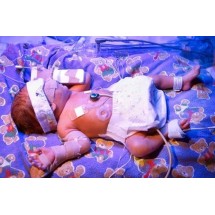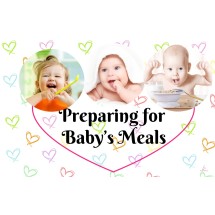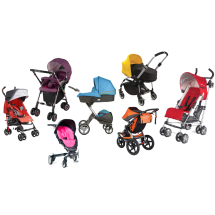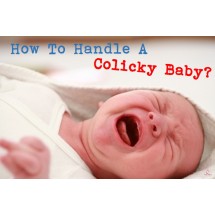
It’s when we don’t have words that we realize it’s not so easy to communicate. First-time parents are sometimes at lost why their baby is crying and it can be distressing for both the baby and the parents if the cause of the baby’s cries is not addressed. Here are 12 reasons why babies cry with anecdotes on how to soothe them!
1. Hunger
Babies cry when they feel hungry and we can spot this when they cry close to feeding time. Other signs to look out for will be putting fingers into mouth, turning head towards your hand on their cheek or smacking of lips. There are different recommendations for timing to feed babies and one of them is on-demand. On-demand feeding can cater to the babies’ need for milk and flexible enough to accommodate growth spurts.
2. Soiled Diapers
A soiled diaper is certainly uncomfortable and it is another common reason why babies cry. Always check your baby’s diaper to see if it’s soiled and change immediately. Contact with soiled diapers can easily lead to skin irritation (diaper rash). Parents can apply a layer of cream over the baby’s bottom to protect the baby’s skin from irritants.
3. Fatigue
Fatigue can lead to a cranky baby; it is not always easy to fall asleep once tired and parents can help to carry the baby for a while or tuck the baby to sleep. Music helps some babies to sleep while motion (in a car) works for other babies. Avoid too much excitement before bedtime and establish a nap and bedtime routine.
4. Gas
Babies swallow air during (bottle) feeding and they have problems burping on their own. Crying and sucking on pacifier also leads to more gas. For the first few months, burp the baby after each milk feed to help release some of these gas.
5. Over-stimulation
Babies get overwhelmed easily and over-stimulated in crowded and noisy places. For the first few months, choose quieter outdoor locations like parks and gardens. Avoid front-facing baby carriers and have the shade of the stroller down when it’s too bright. A cuddle goes a long way and carrying the baby can give her a sense of security and calm the crying. Swaddling the baby or wearing the baby in a sling also gives a sense of comfort. If at home, skin-to-skin contact is studied to reduce stress for the baby and aid in parent-child bonding.
6. Loneliness
Babies like one to one interaction with their loved ones. As they are not able to regulate well their own emotional state, help from their parents are needed. Holding, cuddling, talking and playing work wonders to comfort a lonely baby! It is also not true that attending to babies’ need for attention will cause them to be clingy; the opposite is true – babies that are calmed and comforted from birth can better regulate their emotions when older.
7. Gastrointestinal reflux
A fair percentage of babies suffer from gastrointestinal reflux where the food and gastric juices flow back up from the stomach into the mouth. This is uncomfortable for the baby and have to be monitored closely if the baby is not gaining weight. Parents can try to reduce the amount of each feed but feed more often, burp the baby and put the baby in a slightly upright position after feeding. See a doctor to check if there is lactose intolerance that is causing the reflux.
8. Constipation
Babies do get constipation, especially for babies on formula milk. If you notice the baby’s legs or hands reaching the tummy and less than regular (or hard) stools, it could be constipation. Try gently massaging the baby’s tummy and if already started on solids, reduce constipating foods and offer pear or prune juice.
9. Teething
Teething is a common reason for baby cries from 4 to 7 months old. The gums are tender and there is some pain when the new tooth pushes through the gum. Some babies may also get a slight fever. You can also tell that your baby is teething if you can feel the tooth along the gum. Babies also drool or gnaw on their clothing or other items they can reach. Give your baby chilled teething ring to help with the discomfort.
10. Too Cold or Warm
Just like adults, babies don’t feel comfortable when they are too warm or cold. Infants are not able to fully regulate their body temperature and their sweat glands are still developing. Avoid over-clothing as the sweat glands may get blocked and rashes develop. It is more likely that your baby is uncomfortable with being too warm than too cold.
11. Scratchy Materials
It could also be scratchy clothing or having something trapped between their fingers or toes. There is also a condition known as a hair tourniquet where loose strings from socks or hair get wrapped tightly around the toe or finger, causing discomfort and cutting off circulation. If the baby is crying for no reason, check on the clothing and the tiny fingers and toes.
12. Unwell
If the baby continues to cry without signs of being hungry or tired (or if the cries sound different!), do take temperature for your child. You can also watch out for signs like pulling on certain part of the body or pulling his legs towards the tummy. For an infant, temperature higher than 38 degrees celsius warrants a visit to the doctor. In the meantime, give fluids to the baby and keep the room temperature cool.
The important thing to remember when your baby cry is to remain calm. Babies can pick up stress signals from the parents which would further upset them.
Read more: How To Handle A Colicky Baby?
By Mei






